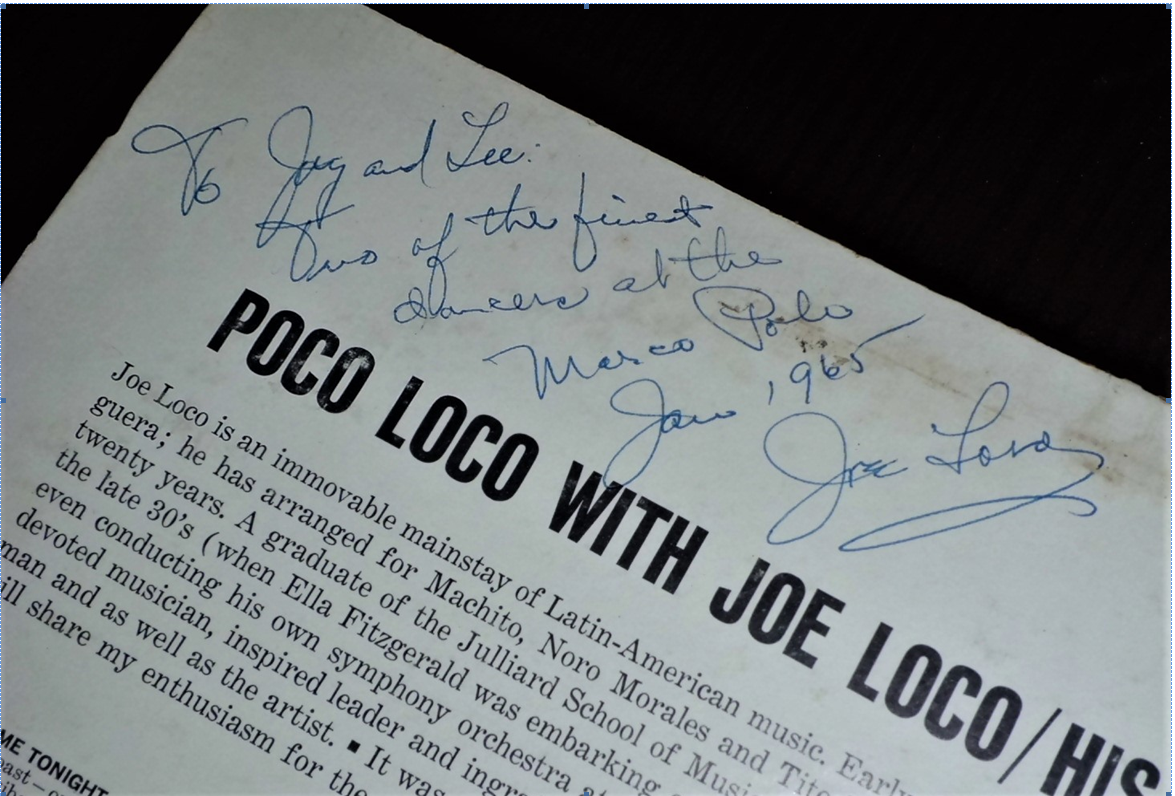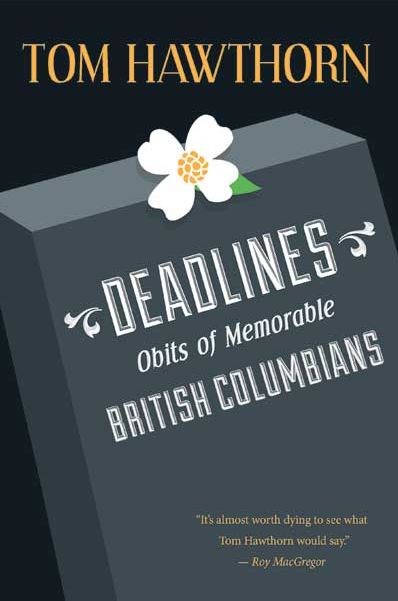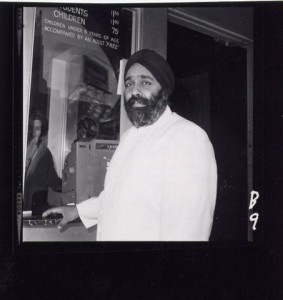In 2017, Tom Carter bought scrapbooks from the Marco Polo that were found in a Chinatown dumpster. The club closed in 1983. From Vancouver Exposed: Searching for the City’s Hidden History
By Tom Carter
Tom Carter is an artist, a musician, a historian, and a private collector. He has kindly agreed to write a guest blog about one of his most exciting finds.
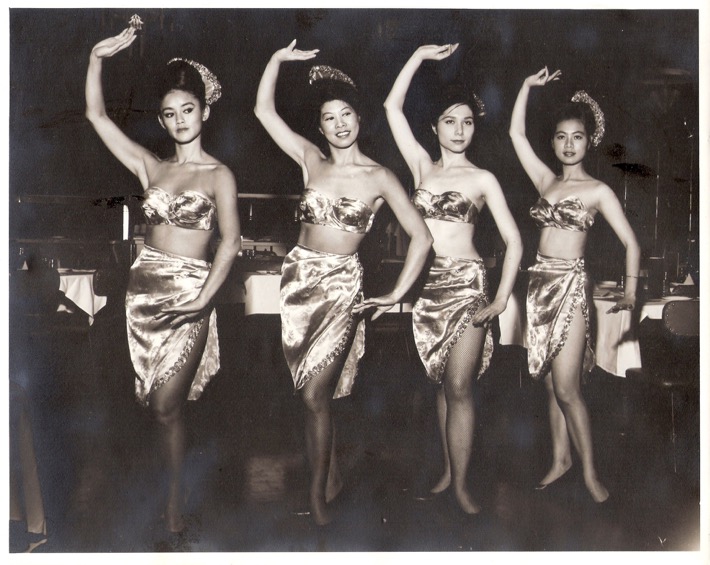
There are some “holy grails” out there in Vancouver entertainment history—stuff we fantasize about that still exists somewhere. I still can’t believe I landed one of the biggest of them—the owner’s scrapbooks from the Marco Polo!
The Marco Polo, a club deep within Chinatown, was one of Vancouver’s legendary nightclubs. In the ‘60s it was considered one of the “big three” along with The Cave on Hornby and Isy’s Supper Club on Georgia. While posters, cards and ephemera are pretty common from The Cave and Isy’s, the Marco Polo has long been shrouded in mystery.
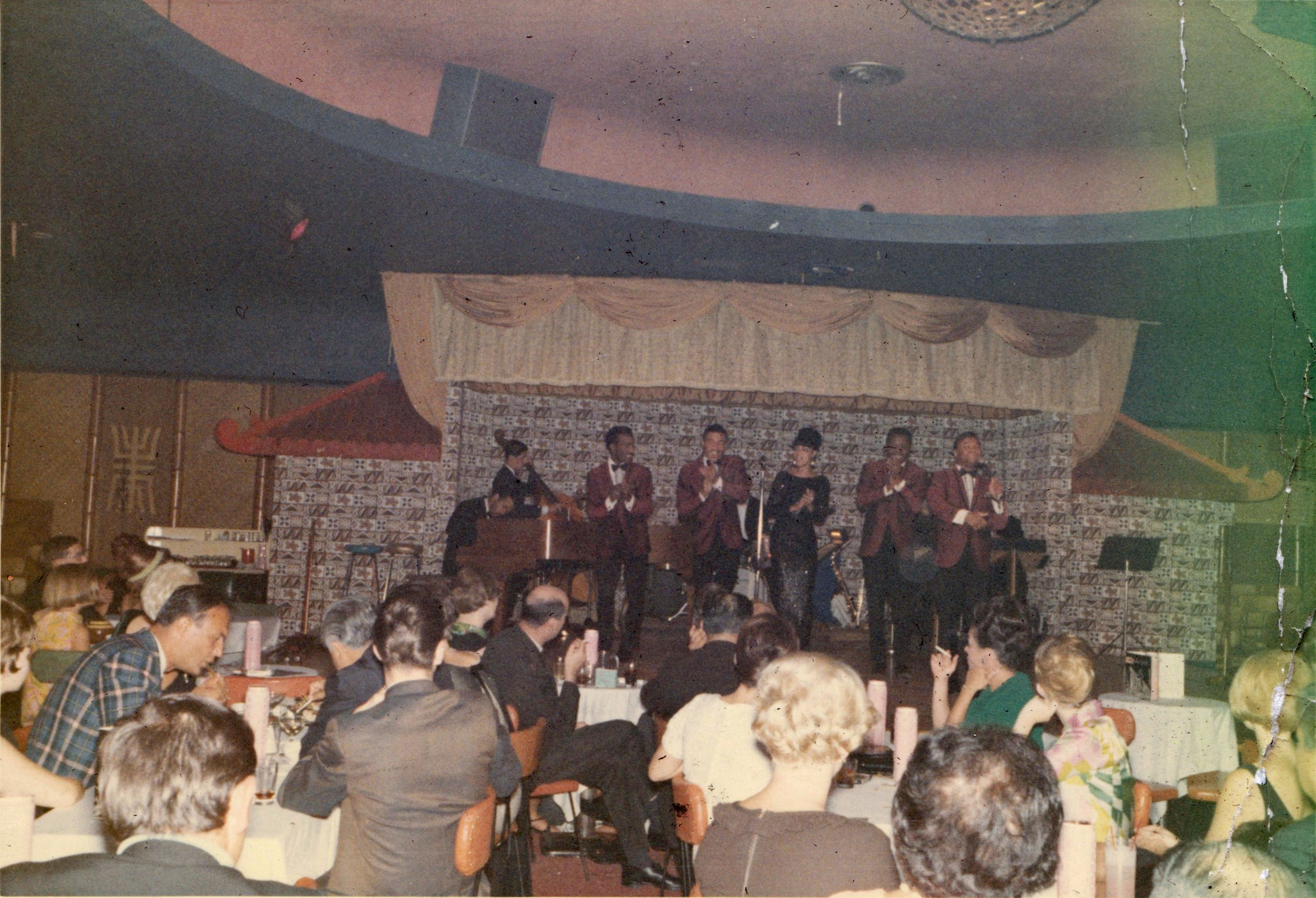
Over the years there have been rumours of scrapbooks kept by Victor Louie, manager and one of the Louie brothers who owned the club. They had become a legend among collectors like Jason Vanderhill and Jim Wong-Chu who have been hunting them for years.
What we knew was that Victor Louie had loaned the scrapbooks to Jason Karman when he was researching a film about Harvey Lowe in the early 1990s. Lowe was a yo-yo champion, owner of the Smilin’ Buddha and a staple of the Chinatown entertainment scene with connections to the Marco Polo.
After Karman returned the scrapbooks they vanished!
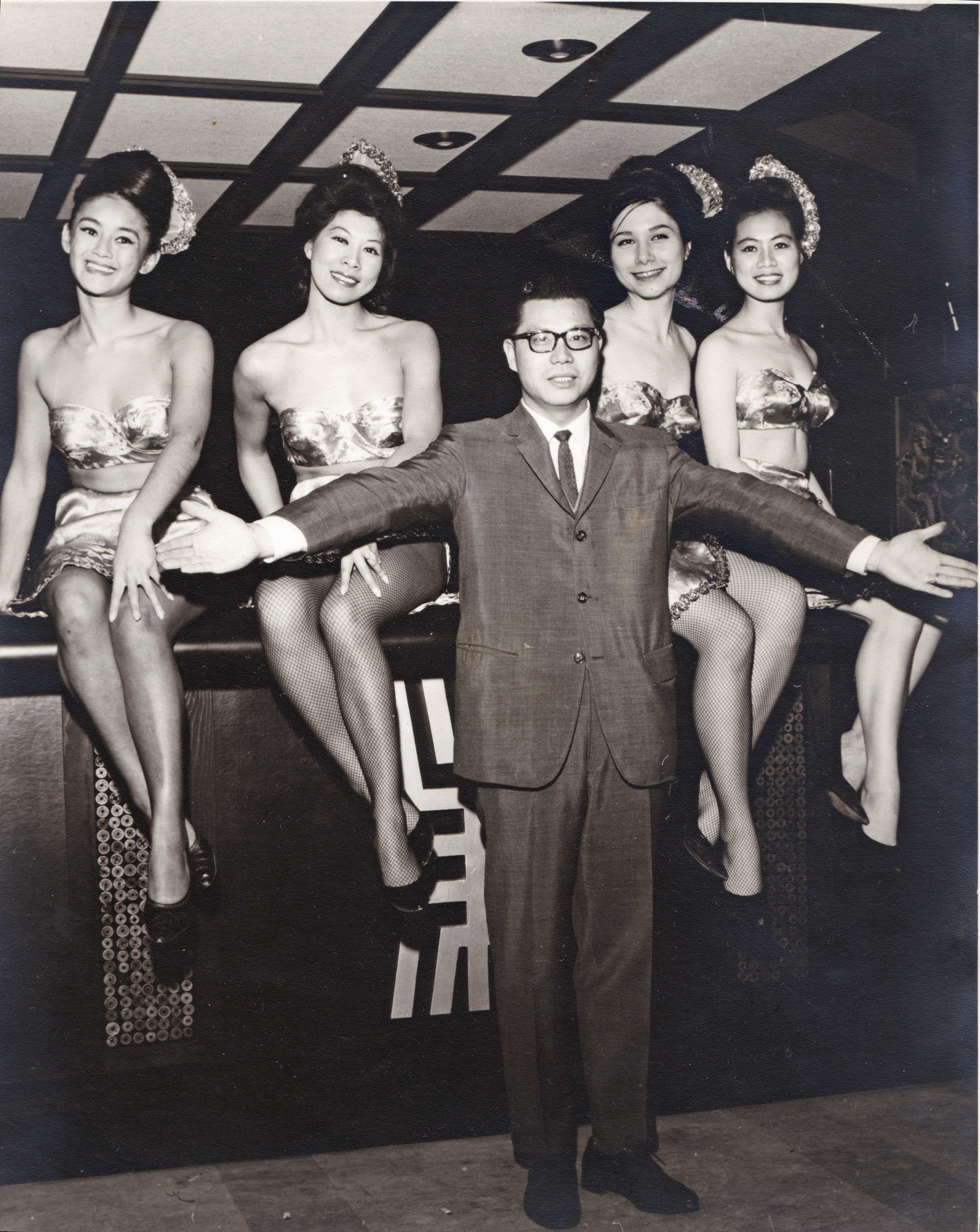
Then, last year, they miraculously resurfaced when a dealer I know bought the scrapbooks from a picker who had pulled them out of the garbage behind a warehouse in Chinatown. (A “picker” is someone who combs through junk in alleys, dumpsters, etc. looking for things of value to sell to antique dealers).
The dealer told me he planned to dismantle the books and sell off the bits—effectively destroying their historical value.
Instead, I bought everything.
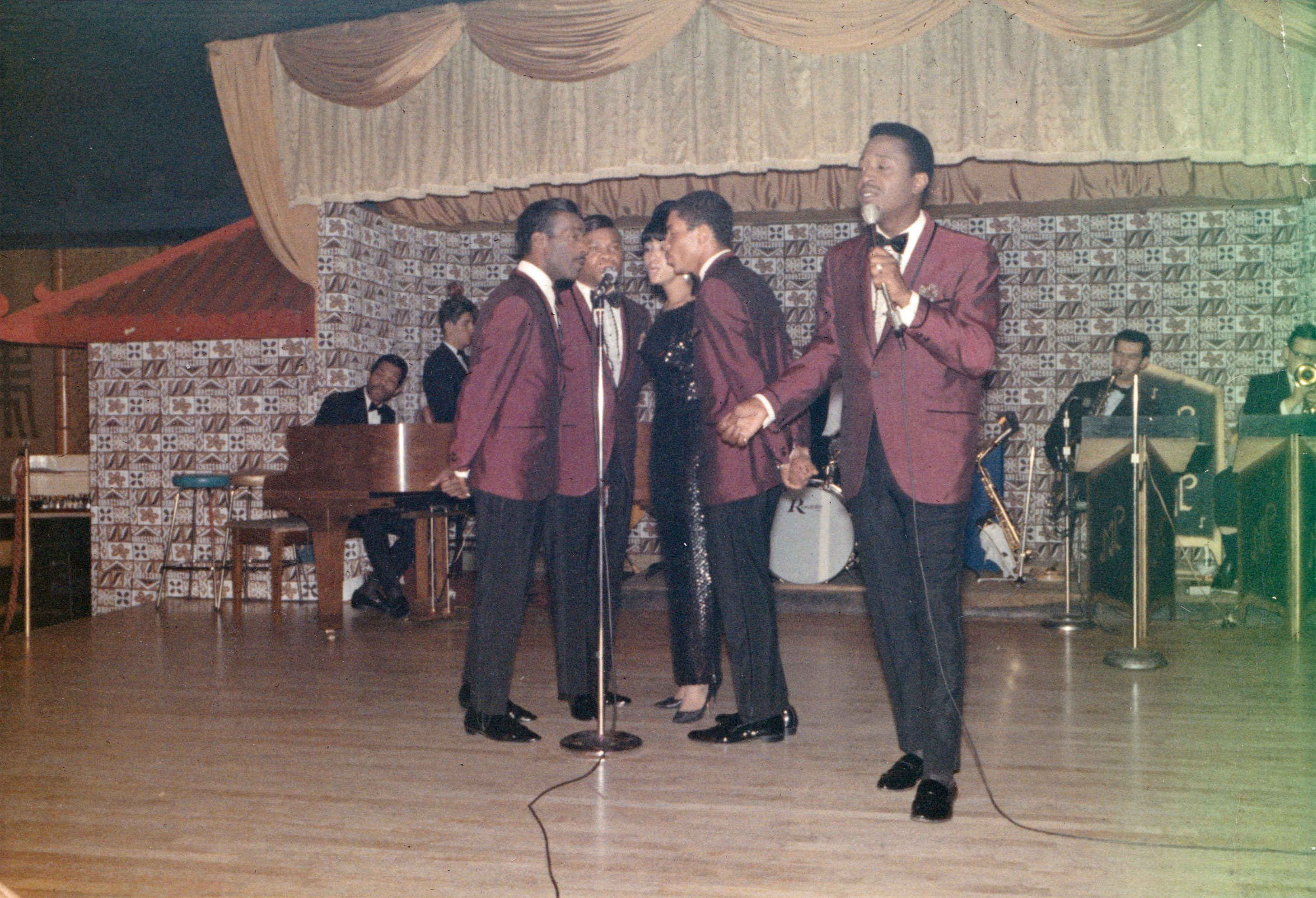
When I got the scrapbooks home, I discovered photos of musicians on stage and chorus girls. There were menus and handbills and all sorts of letters from clients. Harvey Lowe had produced and emceed the opening show, and I found his script. There was even a handwritten listing of every act that played the club from 1964 to 1968!
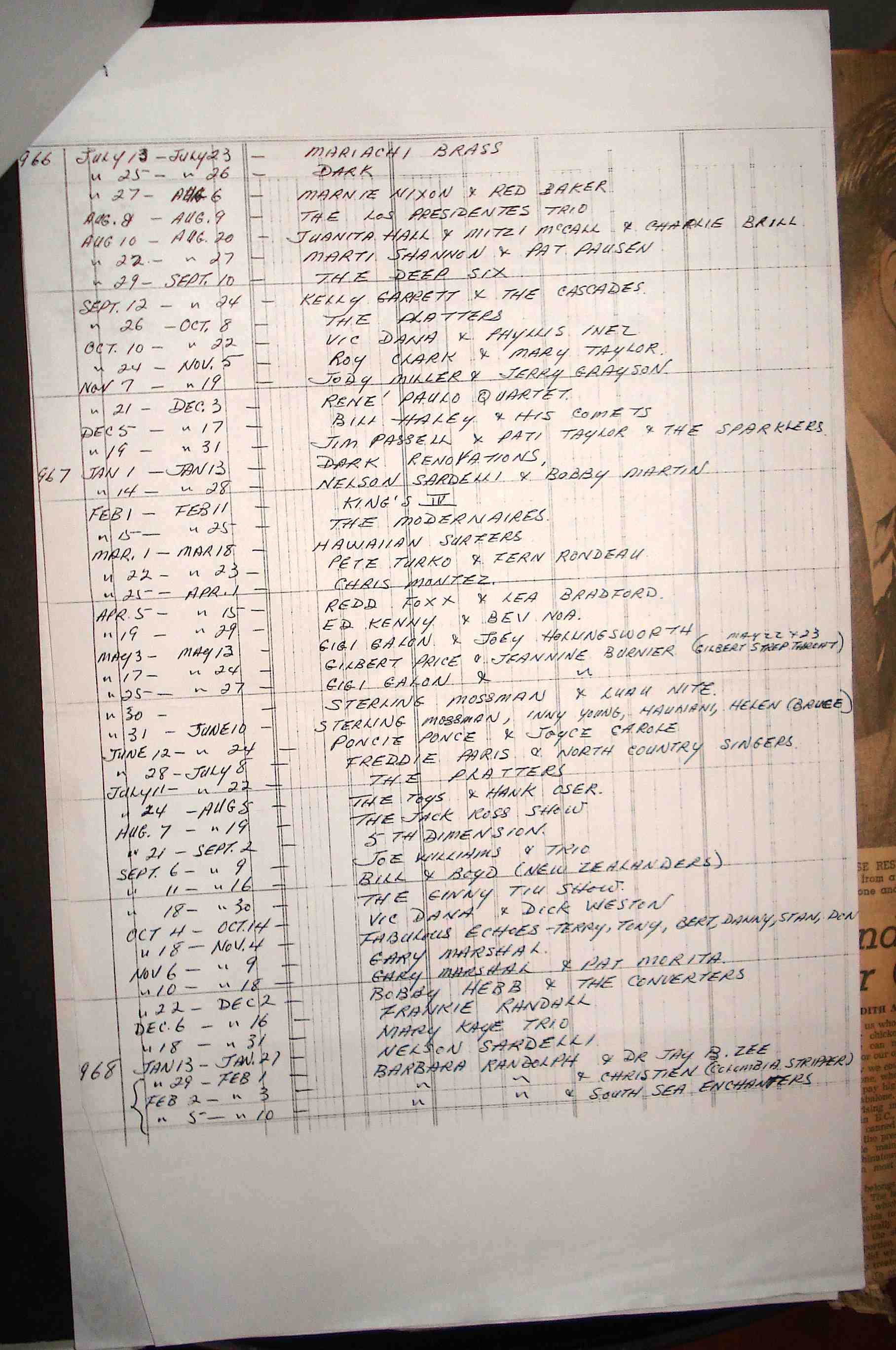
These scrapbooks form a more-or-less complete history of the Marco Polo from 1960 when the Louie’s took over the Forbidden City and renamed it, through to 1982 when the original Chinatown club closed and moved to North Vancouver.
Everything is now photographed, and with the assistance of BC PAMA and the UBC School of Library Archival and Information Studies, the entire contents of the scrapbooks will eventually be online.
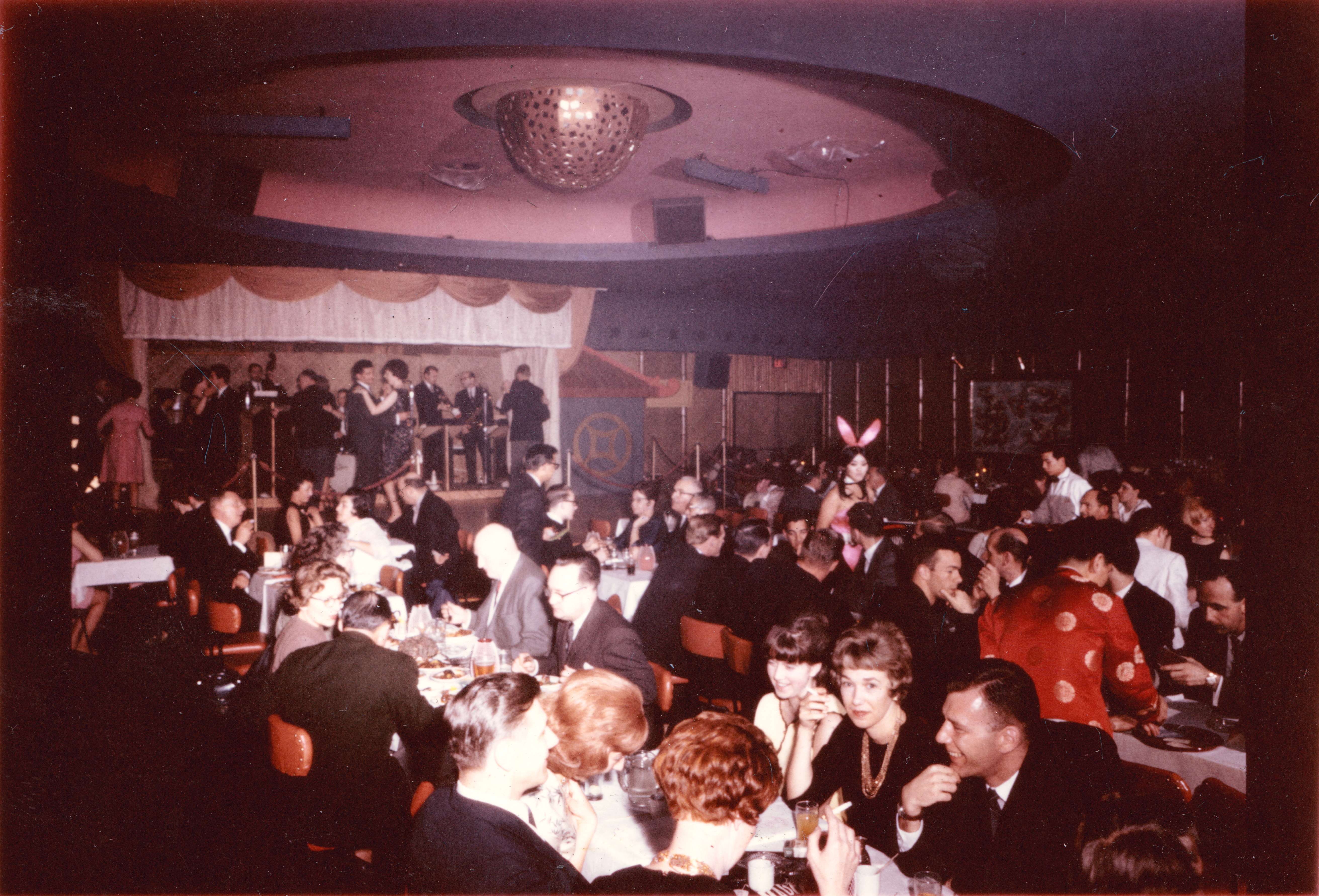
Tom Carter has been painting historical views of Vancouver for many years with artwork in prominent private and corporate collections. Tom serves on the boards of the BC Entertainment Hall of Fame, Friends of the Vancouver Archives and the Vancouver Historical Society. You can read more about his work in Vancouver Confidential “Nightclub Czars of Vancouver and the Death of Vaudeville.”
